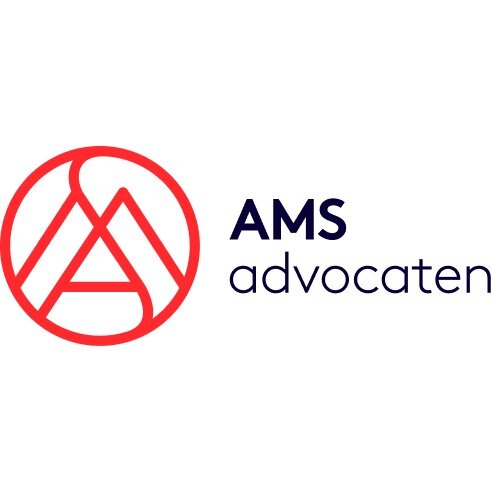Best Landlord & Tenant Lawyers in Amsterdam
Share your needs with us, get contacted by law firms.
Free. Takes 2 min.
Free Guide to Hiring a Real Estate Lawyer
List of the best lawyers in Amsterdam, Netherlands
About Landlord & Tenant Law in Amsterdam, Netherlands
Amsterdam, like the rest of the Netherlands, has a comprehensive framework governing the rights and responsibilities of landlords and tenants. Dutch rental laws are generally tenant-friendly, emphasizing the protection of tenants against unfair practices and ensuring access to affordable and quality housing. The key legislative document guiding these relationships is the Dutch Civil Code, alongside specific regulations addressing rental price standards, maintenance obligations, and procedures for lease termination. Amsterdam also has local ordinances, which can affect some aspects of landlord and tenant interactions, particularly around housing allocation and municipal regulations.
Why You May Need a Lawyer
There are various situations in which you might need legal assistance in dealing with landlord and tenant issues in Amsterdam. These include disputes over rent increase, disagreement regarding maintenance and repairs, conflicts about lease termination or eviction, and cases of alleged unlawful eviction. Legal help may also be necessary for landlords dealing with tenants who fail to pay rent or cause property damage. Furthermore, understanding complex rental agreements or navigating public housing regulations might require professional legal insight to ensure compliance with Dutch law.
Local Laws Overview
Key aspects of landlord and tenant law in Amsterdam include:
- Rent Control: Most properties in Amsterdam fall under the rent control system, where the initial rent and any increase are regulated based on a points system (the woningwaarderingsstelsel). This determines the maximum rent price according to property characteristics.
- Eviction Protections: Tenants cannot be evicted without a court order. The landlord must prove that there is a legal ground for eviction, making it difficult for tenants to be unfairly displaced.
- Lease Agreements: The law differentiates between different types of rental contracts, such as temporary and indefinite tenancies, each with distinct rules for termination and extension.
- Maintenance and Repairs: Landlords are typically responsible for structural maintenance, while tenants handle minor repairs. Disputes in this domain can lead to legal proceedings if agreements are violated.
Frequently Asked Questions
What is the maximum rent increase allowed in Amsterdam?
The rent increase for regulated housing in Amsterdam is determined annually by the government and is usually around inflation rate. For deregulated (liberalized) housing, increases must be agreed upon in the lease contract but should be reasonable and may also be subject to market conditions.
Can a landlord enter the rented property whenever they want?
No, landlords must have the tenant's permission, except in emergencies. Unannounced visits without permission are generally considered a breach of tenant privacy.
How can I dispute an unfair rent increase?
Tenants can apply to the Rent Tribunal (Huurcommissie) to challenge unjust rent increases. The tribunal will assess the rent based on the point system and market conditions.
What should I do if my landlord does not repair issues I reported?
If a landlord fails to address repairs, you can take the case to the Rent Tribunal. It’s important to document requests and responses as evidence.
Can a lease be terminated early by the tenant?
Yes, tenants can usually terminate with a notice period specified in the lease (usually one to three months). Ensure this is done in writing.
Do tenants have a right to extend a temporary lease?
Generally, temporary leases are not subject to automatic renewal. However, landlords must provide notice before term expiration, and various conditions might affect extension possibilities.
What happens if the property is sold during my lease term?
Most leases transfer to the new owner, meaning the selling of the property does not typically terminate the lease agreement.
Is subletting allowed in Amsterdam?
Subletting is typically only allowed if the lease permits it or with landlord approval. Unauthorized subletting can lead to termination of the lease.
What action can I take if the landlord overcharges for utilities?
You can take the issue to the Rent Tribunal, which can determine the correct utility charges based on actual usage and standard rates.
Are furnished rentals subject to different regulations?
Furnished rentals may sometimes have higher base rents but are largely subject to the same rent regulation laws as unfurnished housing in terms of rent protection.
Additional Resources
Helpful resources include:
- The Rent Tribunal (Huurcommissie) for resolving rent disputes
- Legal advice centers (Juridisch Loket) offering free legal consultation
- Amsterdam Municipality websites for local housing ordinances
- Tenant associations like Woonbond and !Woon for tenant support and advocacy
Next Steps
If you require legal assistance, consider consulting a lawyer experienced in Dutch housing law. Begin by gathering all relevant documentation, such as your lease agreement, correspondence with your landlord, and any evidence relevant to your case. Reach out to legal advice bureaus, which may provide initial consultations at reduced rates or for free. For formal legal proceedings, retaining an attorney who specializes in landlord and tenant disputes can ensure you are represented effectively in court or mediation.
Lawzana helps you find the best lawyers and law firms in Amsterdam through a curated and pre-screened list of qualified legal professionals. Our platform offers rankings and detailed profiles of attorneys and law firms, allowing you to compare based on practice areas, including Landlord & Tenant, experience, and client feedback.
Each profile includes a description of the firm's areas of practice, client reviews, team members and partners, year of establishment, spoken languages, office locations, contact information, social media presence, and any published articles or resources. Most firms on our platform speak English and are experienced in both local and international legal matters.
Get a quote from top-rated law firms in Amsterdam, Netherlands — quickly, securely, and without unnecessary hassle.
Disclaimer:
The information provided on this page is for general informational purposes only and does not constitute legal advice. While we strive to ensure the accuracy and relevance of the content, legal information may change over time, and interpretations of the law can vary. You should always consult with a qualified legal professional for advice specific to your situation.
We disclaim all liability for actions taken or not taken based on the content of this page. If you believe any information is incorrect or outdated, please contact us, and we will review and update it where appropriate.















